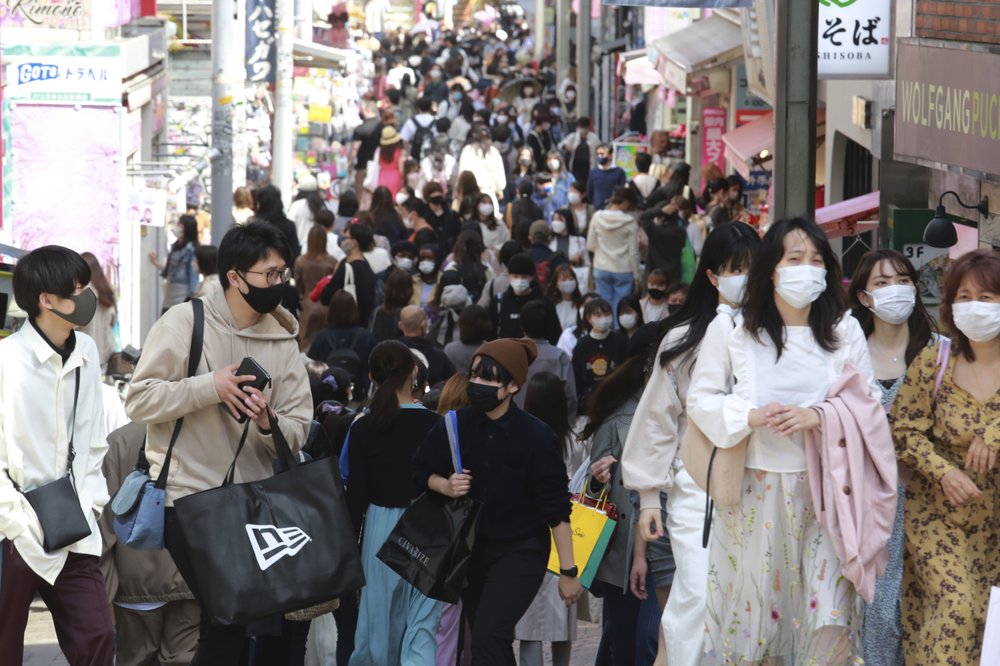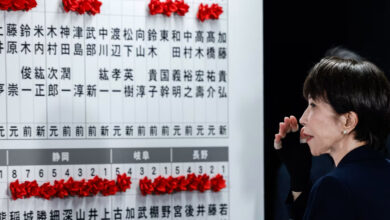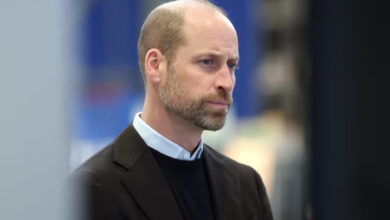
TOKYO — Japan is calling for further investigation into the origins of COVID-19, saying the WHO report released this week was based on work that faced delays and lacked access to essential virus samples.
“In order to prevent future pandemics, it is indispensable to carry out prompt, independent and experts-led investigations that are free of surveillance,” Chief Cabinet Secretary Katsunobu Kato told reporters. “We are concerned that the latest investigation faced delays and the lack of access to virus samples.”
The World Health Organization’s report was released Tuesday after experts traveled to Wuhan, China, the city where illnesses from the coronavirus were first detected in late 2019.
China has touted its cooperation with WHO and warned that attempts to politicize the matter would cost lives. The U.S. and other countries say the WHO report lacked crucial information, access and transparency and further study was warranted.
Kato called for additional investigation and analysis and said Japan will encourage WHO to consider additional investigation inside China.
“We will further cooperate with other countries in carrying out additional studies that are still necessary,” Kato said.
The report said the virus most likely came from bats and spread to an unidentified mammal before being transmitted to people. It called a laboratory leak an unlikely route of transmission that didn’t warrant further study.
___
THE VIRUS OUTBREAK:
— After 3 pandemic lockdowns, London tourism braces for slow recovery
— After tumult, White House virus briefings have turned wonky, aiming to deliver facts and restore trust
— China’s loans impose unusual terms that hurt poor countries’ ability to renegotiate debts after pandemic, researchers say
— Follow AP’s pandemic coverage at https://apnews.com/hub/coronavirus-pandemic, https://apnews.com/hub/coronavirus-vaccine and https://apnews.com/UnderstandingtheOutbreak
___
BEIJING — At least nine people have tested positive for COVID-19 in a Chinese city on the border with Myanmar, health officials said Wednesday.
Five are Chinese citizens are four are Myanmar nationals, the Yunnan Province Health Commission said in a report posted online. Three of the infected people did not have any COVID symptoms.
The city of Ruili, with a population of about 210,000 people, said all residents would be tested for COVID-19 and would have to home quarantine for one week. The residential compound where the infections were found has been locked down.
The city also ordered a crackdown on people who cross the border illegally, anyone who shelters them and those who organize such border crossings. It wasn’t immediately clear how the outbreak started.
China has largely eradicated the spread of the coronavirus and takes strict measures whenever a new cluster emerges.
___
CASPER, Wyo. — Wyoming’s governor is rejecting a call by President Joe Biden for states to reimpose mask orders in response to the coronavirus pandemic.
A spokesman said Tuesday that Gov. Mark Gordon has no plans to reimpose Wyoming’s statewide mandate, which he lifted March 16. It had been in effect since December.
Several other governors have recently ended mask mandates.
Coronavirus cases nationwide are on the rise, but infections in Wyoming have fallen off sharply since December. New cases are back at the level of September — about 50 new cases per day. That is down from a peak of over 600 daily infections.
___
BATON ROUGE, La. — The governor of Louisiana said he intends to keep the state’s face covering requirement firmly in place even as several states have shed their mask mandates.
Democratic Gov. John Bel Edwards also said he is ending many other coronavirus restrictions for businesses.
Customer limits on bars, restaurants, salons, gyms, malls, casinos and other nonessential businesses will be removed, though they’ll be required to use social distancing. Direct table service still will be required at bars, but an 11 p.m. alcohol curfew will end.
The changes represent the fewest restrictions for businesses since the pandemic began. The new rules start Wednesday. Local officials could choose to enact tougher limits.
___
BERLIN — German health officials have agreed to restrict the use of AstraZeneca’s coronavirus vaccine in people younger than 60, amid fresh concern over unusual blood clots reported in a tiny number of those who received the shots.
Health Minister Jens Spahn and state officials agreed unanimously to only give the vaccine to people aged 60 or older, unless they belong to a high-risk category for serious illness from COVID-19 and have agreed with their doctor to take the vaccine despite the small risk of a serious side effect.
Several German regions — including the capital Berlin and the country’s most populous state, North Rhine-Westphalia — had already suspended use of the shots in younger people earlier Tuesday.
Berlin’s top health official Dilek Kalayci says the decision was taken as a precaution after the country’s medical regulator announced 31 cases of rare blood clots in people who had recently received the vaccine. Nine of the people died.
Some 2.7 million doses of the AstraZeneca vaccine have been administered in Germany so far.




